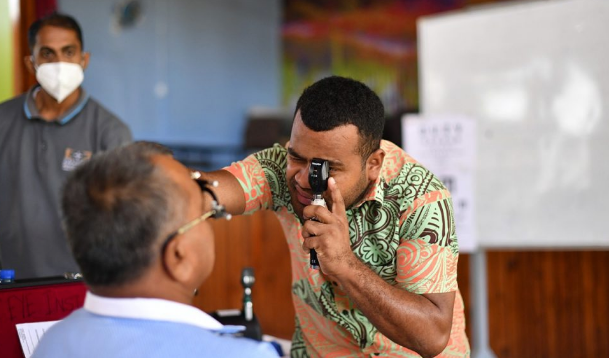
image credit- auckland.ac.nz
Pacific eye health leaders recognise that strengthening eye health systems requires evidenced-based research informed by the Pacific context. The Fred Hollows Foundation New Zealand (NZ), in collaboration with the University of Auckland, aims to support the development of locally driven research through a new and ambitious research programme named the ‘State of Eye Health in the Pacific’.
The programme intends to develop the evidence that Pacific governments and decisionmakers require to establish eye-health plans and policies that will strengthen and sustain their eye-health systems for the long term.
Key to the success of the programme, will be the engagement of ophthalmic nurses who, as the professionals at the forefront of tackling avoidable blindness, will lead the research activities in their respective countries.
The University of Auckland (Centre for Pacific and Global Health and School of Optometry and Vision Science) will partner with The Foundation on this research programme, with both organisations committed to supporting sustainable, resilient, and quality eye care in the Pacific.
In three phases over five years, through partnerships and local leadership, this research programme aims to address the current lack of information and data on Pacific eye health, and the current and future socio-economic impacts that blindness and vision impairment have on Pacific Island Countries (PICs) and their communities.
PICs often face unique geographical, governance, and financing challenges in delivering accessible and quality healthcare for their people. This means governments must decide which public health issues to prioritise. As well as this, with hundreds of islands spread across the Pacific region, covering approximately 15 percent of the earth’s surface, collecting timely and accurate data to help with these decisions is extremely challenging.




